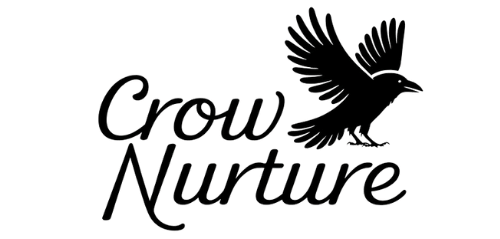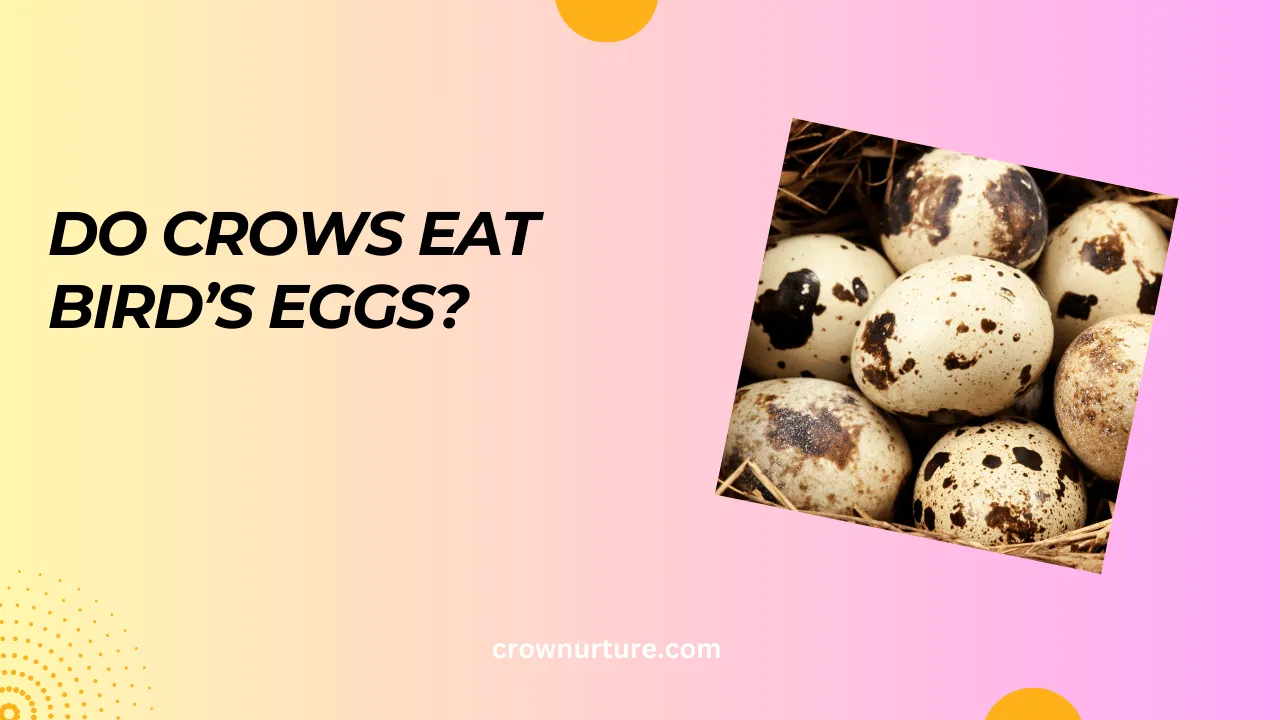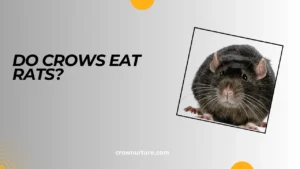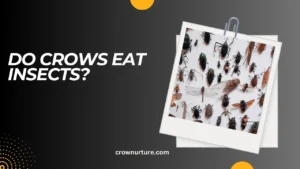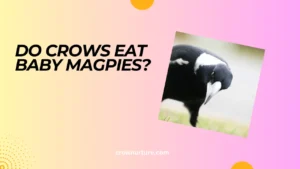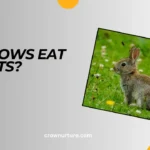Crows, with their sharp intelligence and adaptable behavior, have earned their reputation as one of nature’s cleverest birds. But for many bird enthusiasts, they’re also seen as cunning predators, raiding nests for eggs and nestlings.
This behavior raises a fascinating yet controversial question: Do crows eat bird eggs, and if so, what does this mean for the ecosystem?
The truth lies in their opportunistic diet. Crows are omnivores, meaning they eat a wide variety of foods, including insects, fruits, carrion, and yes, bird eggs when the opportunity arises.
But before labeling them as villains, it’s essential to consider their broader role in nature. While they can impact some bird populations, crows also provide crucial ecological benefits, from controlling pests to aiding in seed dispersal.
Understanding the dietary habits of crows is not just about defending or condemning them. It’s about appreciating the intricate balance of ecosystems and how every species, even the misunderstood crow, contributes to nature’s harmony. Let’s dive deeper into their predatory tendencies and their place in the natural world.
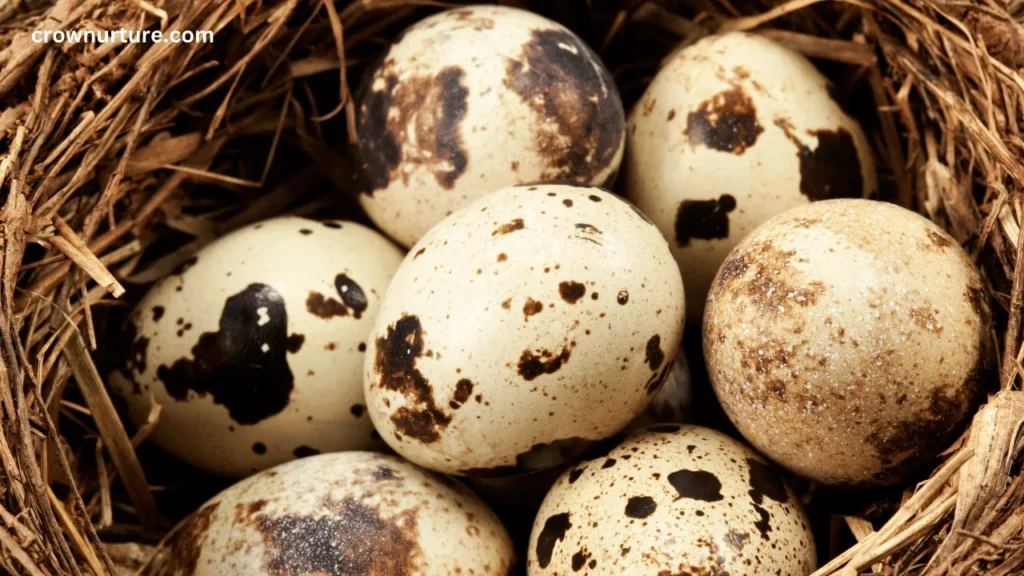
Contents
1. Crows: Opportunistic Omnivores
- Diverse Diet:
Crows are incredibly adaptable, thriving on a diet that includes insects, fruits, seeds, carrion, and even small mammals. Their ability to eat almost anything makes them highly successful in diverse habitats. - Egg Predation as a Food Source:
Bird eggs and nestlings provide a rich source of protein, particularly during breeding seasons when crows need extra energy to raise their own young. This makes eggs a valuable, though opportunistic, addition to their diet.
2. Impact of Egg Predation on Bird Populations
- Vulnerability of Nestlings:
Nestlings and eggs are among the most defenseless targets in nature, unable to escape predators like crows. This vulnerability increases during the spring breeding season. - Nest Success Rates:
Crow predation can significantly reduce the reproductive success of certain bird species, especially those already facing challenges such as habitat loss or declining numbers. - Vulnerable Species:
Birds with open-cup nests or ground-nesting habits, such as skylarks and plovers, are particularly susceptible to crow predation, as their nests are easier to access.
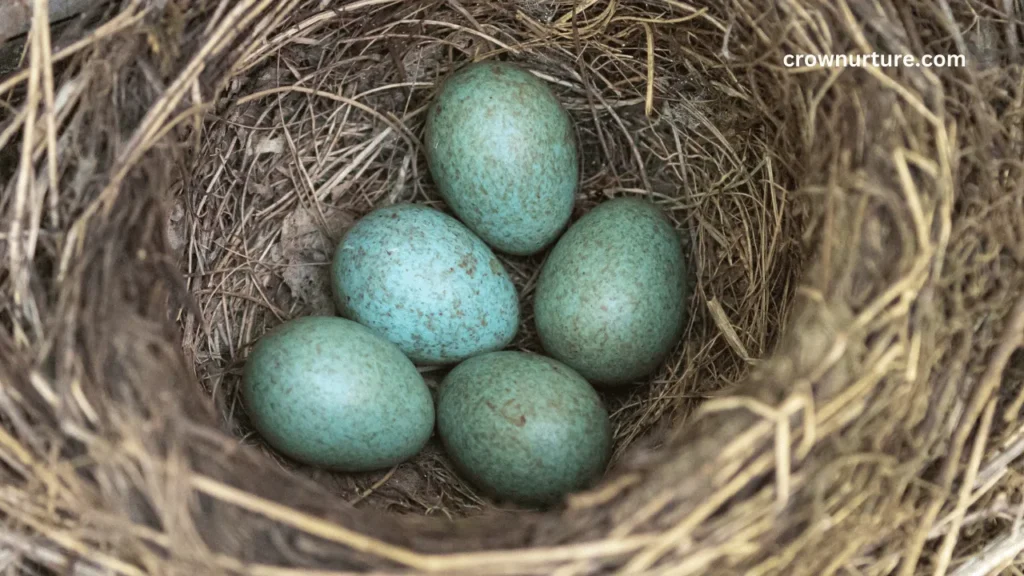
3. Factors Influencing Predation Rates
- Habitat Loss and Fragmentation:
Human activities like urbanization reduce suitable nesting sites, forcing birds to nest in areas where they’re more exposed to predators like crows. - Human Activities:
Agricultural practices and waste disposal often increase food availability for crows, leading to population growth and potentially higher predation rates. - Competition and Predation:
Crows often compete with other predators, such as squirrels and raccoons, which can influence how frequently they target bird nests.
4. The Ecological Role of Crows
- Insect Control:
Crows help control pest populations, including insects that can damage crops, making them valuable allies to farmers. - Scavenging:
As natural scavengers, crows aid in the decomposition process, removing carrion and reducing the spread of disease. - Seed Dispersal:
By consuming fruits and excreting seeds in new locations, crows contribute to plant regeneration and forest growth.
5. Minimizing the Impact of Predation
- Habitat Restoration:
Protecting and restoring natural habitats can reduce nest vulnerability by providing birds with safer, more concealed nesting sites. - Predator Deterrents:
Simple solutions like bird netting, scarecrows, or reflective objects can help deter crows from raiding nests in gardens and farms. - Understanding Ecological Balance:
It’s essential to recognize that while crows may prey on bird eggs, they are an integral part of the ecosystem, contributing to its overall health and stability.
Conclusion
Crows are opportunistic omnivores that include bird eggs in their diverse diet, especially when the opportunity arises. While their predation can negatively impact certain bird populations, their ecological roles cannot be overlooked.
Crows help control pests, clean the environment through scavenging, and even assist in plant regeneration.
Balancing conservation efforts for vulnerable bird species while appreciating the ecological significance of crows is vital. Rather than viewing them solely as predators, we should strive to maintain a balanced ecosystem that supports the needs of all species.
By protecting natural habitats and using deterrents, we can coexist with these intelligent birds while preserving the diversity of life around us.
Crows remind us of the complex interplay of nature’s web—a web where every strand is essential, even the ones that may seem troublesome at first glance.
FAQs
1. Do crows commonly eat bird eggs?
Yes, crows are opportunistic feeders and will eat bird eggs if they find an unguarded nest, especially during their breeding season.
2. Why do crows eat bird eggs?
Eggs provide a rich source of protein and energy, making them a valuable food source for crows, especially when raising their own young.
3. Are certain bird species more vulnerable to crows?
Yes, species with ground nests or open-cup nests, such as plovers and skylarks, are more exposed to crow predation.
4. Do crows eat eggs all year round?
Crows are more likely to eat eggs during the spring and summer breeding seasons, as nests are more abundant during this time.
5. How can bird nests be protected from crows?
Predator deterrents like bird netting, scarecrows, or reflective objects can help protect nests from crow predation.
6. Do crows’ dietary habits harm ecosystems?
While crows can impact some bird populations, they also play essential roles, such as controlling pests and scavenging carrion, which benefit ecosystems.
